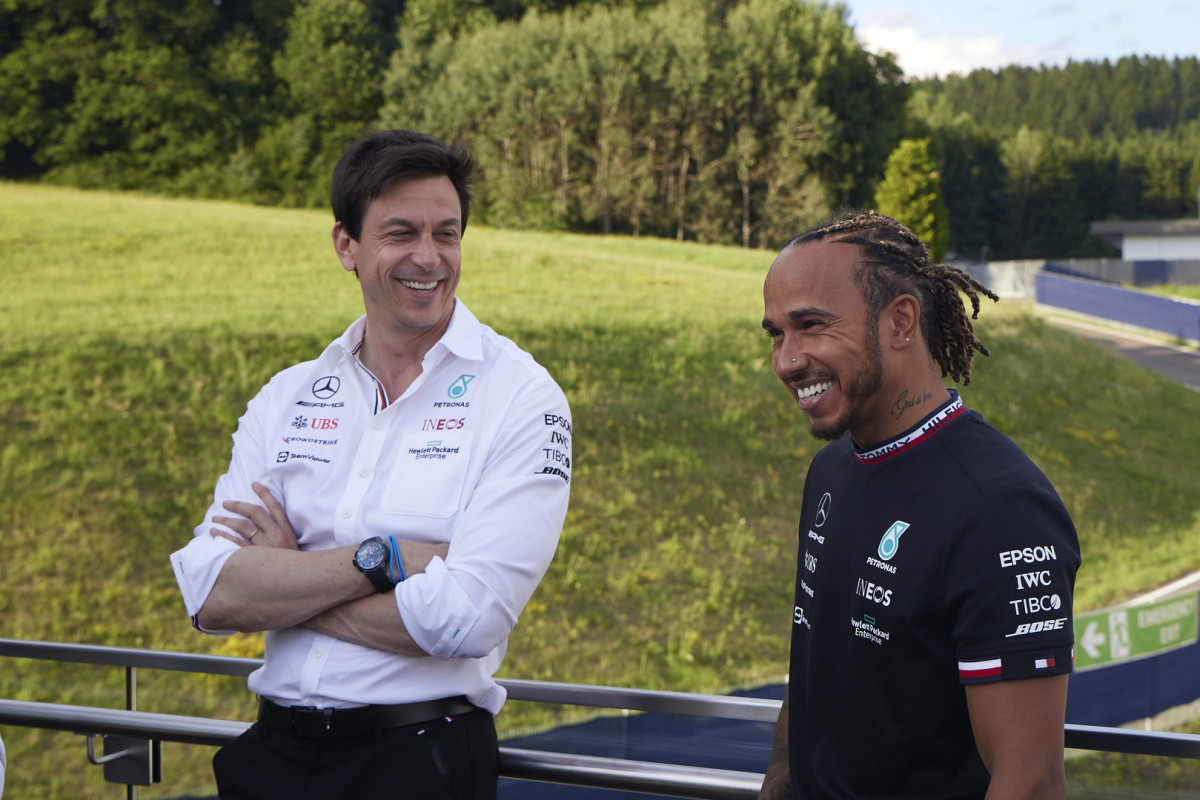
F1 Rumour: Toto Wolff Wasn't In Control Of Lewis Hamilton's Mercedes Contract
Toto Wolff's grip on Lewis Hamilton's contract negotiations with Mercedes appears to have been less firm than previously thought, as Stuttgart's directives seemingly took precedence. This revelation sheds new light on Hamilton's surprising switch to Ferrari, marking a significant shift in the F1 landscape.
Key Takeaways:
- Contractual Constraints: Despite Toto Wolff's intention to secure a two-year renewal for Hamilton, the final agreement was shaped by Mercedes' headquarters in Stuttgart, leading to a one-year deal with an option for a second. This arrangement introduced an exit clause for both parties, hinting at uncertainty about Hamilton's future with the team.
- Role and Recognition: Hamilton's aspirations for a significant post-racing role within Mercedes, potentially even a seat on the board, remained unfulfilled. This dissatisfaction, coupled with Mercedes' cautious stance on his career's longevity, influenced his decision to entertain Ferrari's offer.
- Strategic Shifts and Future Prospects: The decision-making process behind Hamilton's move was influenced by Mercedes' concerns over his sudden retirement and the competitiveness of their car. Meanwhile, Wolff remains optimistic about the team's future, banking on the potential of Andrea Kimi Antonelli, a rising star in the F2 championship.
Toto Wolff's recent admissions have unveiled a complex backdrop to Lewis Hamilton's departure from Mercedes to Ferrari. Initially poised for a two-year extension, the negotiations took a turn when Mercedes' headquarters in Stuttgart intervened, proposing a more flexible one-year agreement with an optional extension.
This setup allowed both Hamilton and Mercedes to part ways if circumstances warranted, a provision that starkly contrasts with the team's previous long-term commitments to its star driver.
Hamilton's ambitions to transcend his role as a mere ambassador for Mercedes went unaccredited. This oversight, despite the team's support for his social causes like Ignite and Mission 44, was insufficient to retain his loyalty when faced with an enticing proposal from Ferrari.
The undercurrents of doubt regarding Hamilton's career longevity, reminiscent of Nico Rosberg's abrupt retirement, led Mercedes to seek a definitive answer on his intentions before the 2024 season commenced. Despite optimistic projections for the W15's performance, Hamilton's decision was swayed by the promise of Ferrari's future prospects, which I assume to be revolving around the 2026 change in regulations, and his own ambitions for a new challenge.
As the F1 community reels from this seismic shift, Wolff's strategic vision for Mercedes' future comes into focus. Will upcoming talent such as Andrea Kimi Antonelli see him take a part in the Mercedes team's short term future? Antonelli's promising trajectory in F2 positions him as a potential successor to Hamilton, but it's unlike Mercedes to take such a gamble on a new driver.
